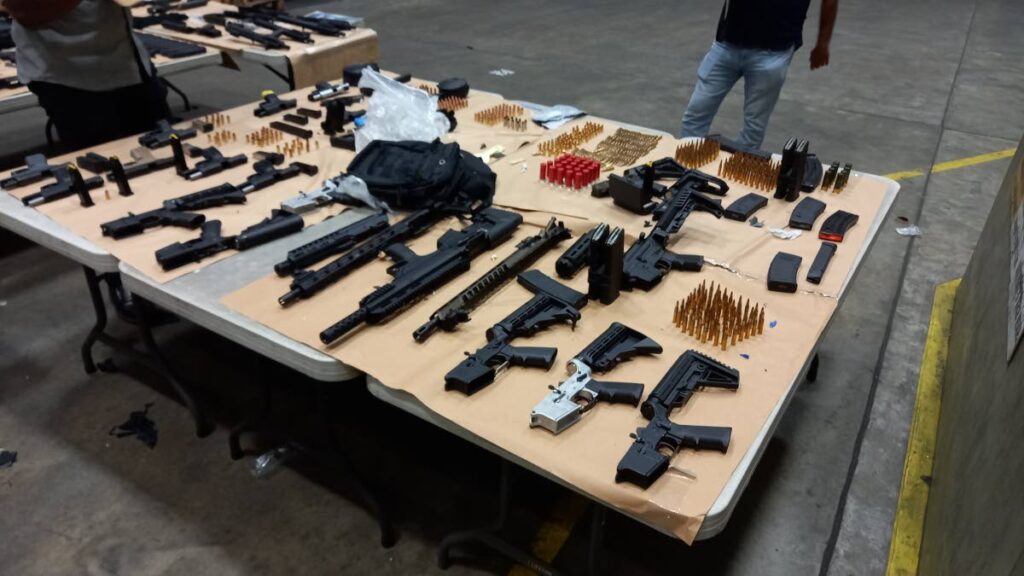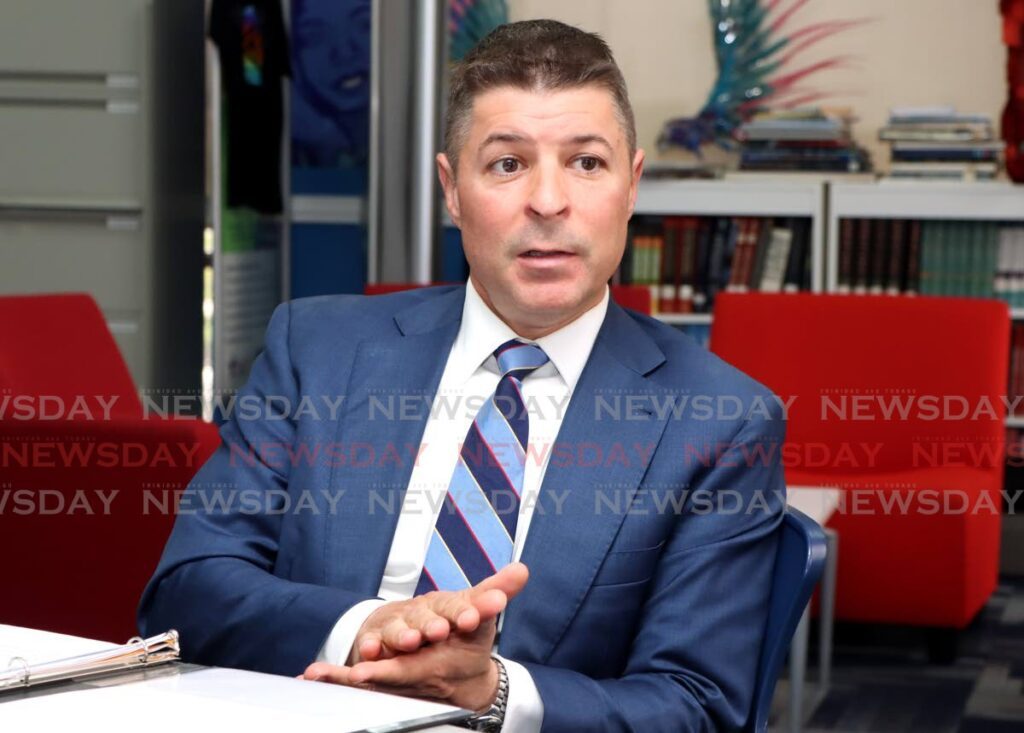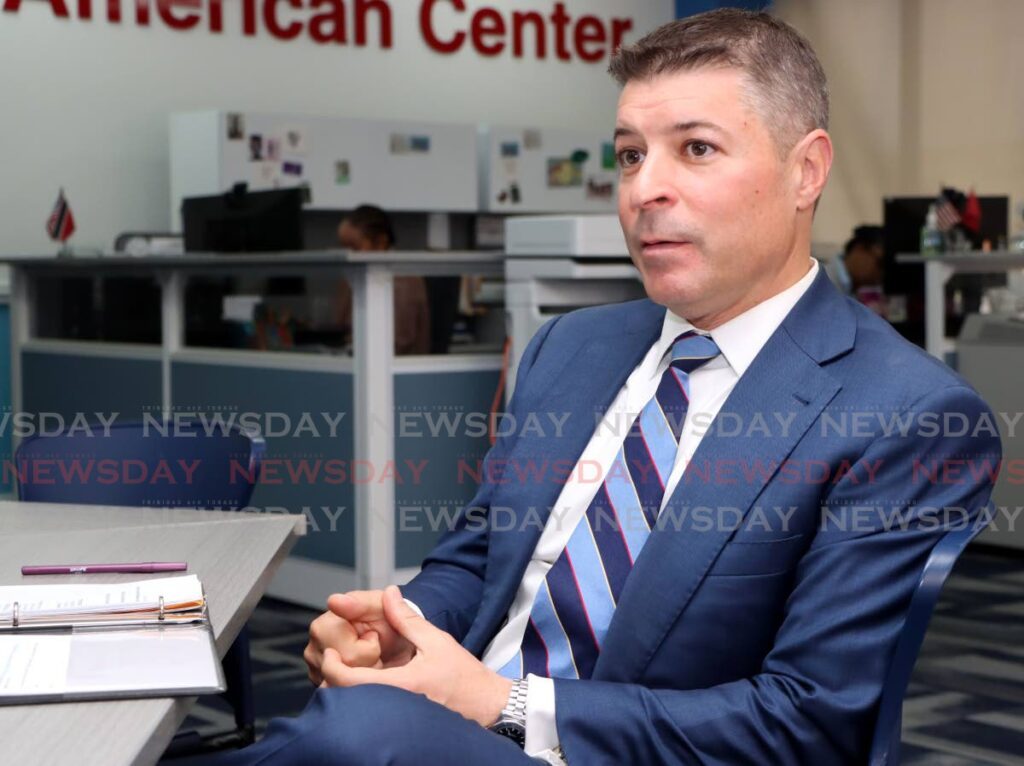US Department of Justice helps crack down on gun trafficking from US – Caribbean

A major source of illicit firearms in the Caribbean is the United States, trafficked through maritime cargo or postal parcels camouflaged with innocuous items.
“The trafficker simply needs to camouflage the items well enough to blend in with the thousands of shipments of other goods departing and arriving from international ports every day,” a study by Caricom IMPACS (Implementation Agency for Crime and Security) said in an April 2023 Caribbean Firearms study.
Recognising this, the Biden administration joined forces with Caricom to clamp down on weapons entering the region.
This partnership led to the establishment of the Caricom Crime Gun Intelligence Unit (CCGIU) aimed at fostering collaboration between regional law enforcement and agencies in the US including the Bureau of Alcohol, Tobacco, Firearms and Explosives (ATF), Homeland Security Investigations and Customs and Border Protection agencies.
In June 2023, the White House said the Biden-Harris administration reiterated the US commitment to disrupting firearms trafficking in the Caribbean by interdicting illicit shipments of firearms and ammunition and by holding offenders accountable and bringing them to justice.
A month later, Secretary of State Antony Blinken announced to a gathering of regional leaders in Port of Spain the appointment of an experienced Department of Justice (DOJ) prosecutor, Michael Ben’Ary, as the first co-ordinator for Caribbean firearms prosecutions. He is also a DOJ associate deputy attorney general (ADAG).
Ben’Ary was in Trinidad and Tobago from May 8-10.

In a face-to-face interview with Sunday Newsday at the US Embassy’s offices in Port of Spain on May 9, he shared the US’s concern and focus.
“If we can take gun-trafficking networks out of play by investigating, identifying and prosecuting them, it will decrease the number of firearms leaving our shores and flooding your shores.”
While in Trinidad, he met with the CCIGU, based in Port of Spain, which he said was an “important resource in detecting and prosecuting the firearms trafficking networks in the US that are responsible for shipping weapons that end up in the hands of the wrong people here.”
While he clarified that he, as co-ordinator for Caribbean firearms prosecutions, did not investigate or prosecute cases, one of his main tasks is to contact federal prosecutors and regional partners that handle gun-trafficking investigations.
It was also his first visit to Caricom IMPACS, he said. Here, he met with Lt Col Michael Jones, IMPACS executive director.
In the April 2023 arms study, Jones admitted the region continued to grapple with “pervading gun violence.”
“The use and trafficking of illicit firearms by criminals is a serious national and regional problem. It impacts almost every Caribbean jurisdiction and affects the safety of our communities,” he said in his foreword.
Ben’Ary said a priority for the Biden-Harris administration was going after firearms-trafficking networks responsible for shipping illegal firearms to the Caribbean, including TT.
For his part, Ben’Ary emphasised the importance of getting gun-tracing resources available at the CCGIU used widely in TT.
“This is a priority for the DOJ and administration and my job, as I view it, is to drive efforts to get US prosecutions of firearm trafficking networks up and running.
“This is not to say there aren’t trafficking prosecutions. I have my team in Washington, DC, keeping an eye on all arms-trafficking prosecutions to the Caribbean…And there have been success stories.
“I am particularly focused on driving traffic to the crime gun intelligence unit (CCGIU) because I think that crime gun-tracing data will lead to more effective, more voluminous prosecutions that will take these firearms-trafficking networks out of play and have a real impact in TT and the region.
“I hope it is a benefit to both our nations…Efforts that will yield benefits both in the US and our partners here in the Caribbean.”
Why is the US interested in what happens in the Caribbean?
“Stability and security of the region is important to us. If there is illegal conduct originating from our shores, we view that as a shared problem.”

With the US having a Second Amendment right to bear arms and relative ease in buying guns, Ben’Ary addressed any scepticism about the US’s efforts.
“What we would like to see has nothing to do with the legal right to bear arms…When firearms are encountered by police during arrests or other law-enforcement activities, they will use the resources of the unit to trace the firearms and work with us so we can find people who are not exercising their legal constitutional rights and operating illegally in the US by violating our laws that relate to firearms trafficking.
“So none of it is legal in this chain of events in our eyes and we are interested in going after guns that are in the wrong hands.”
Ben’Ary disclosed that the CCIGU was building on its ballistic analysis to compare weapons seized in police raids to evidence from other crime scenes or to see if they have been used in more than one crime.
“We have the capacity to assist in ballistic analysis and firearm tracing, which sort of gives you the birth certificate of the gun, and allows us to investigate the circumstances of it sort of leaving the legal channels and being diverted where it ends up in the wrong hands. That really is the focus of our firearms-trafficking prosecution efforts.
“We do have a picture painted by firearms tracing. So I would say it is not the gun itself, it is how it is purchased and transferred and whose hands it falls into…
“There are certain people who are prohibited from having firearms and there are certain people that want to use firearms to commit other crimes, and that is what we are focused on.
“When you seize those guns and enter them into the tracing unit, you do get the picture where they are being purchased in the US.”
According to Ben’Ary, data from the US agencies have identified areas with lots of Caribbean connections, such as Florida and Atlanta, where the “highest volume of guns purchased (in the US) ends up in the region.”
During the interview, the US co-ordinator for Caribbean Firearms Prosecution spoke of the Bipartisan Safer Communities Act (BSCA) recently passed by Congress.
Ben’Ary’s appointment followed the passage of the BSCA.
“BSCA adds a new code section and enhanced penalties for straw purchases (ATF defines a straw purchase as buying a firearm for someone who is prohibited by law from possessing one, or for someone who doesn't want their name associated with it). It (the law) makes that a more substantial offence and adds a section that makes it illegal to traffick firearms,” Ben’Ary explained.
“Part of my job is to make sure our prosecutors are effectively employing those new legislative tools…But it is really important and it is a reason we are optimistic that we are going to be able to make a lot of headway with the combination of those new authorities that Congress gave us and firearms-tracing efforts.”
Another piece of pending legislation introduced by Senators Chris Murphy, Tim Kaine and Florida representatives Sheila Cherfilus-McCormick and Joaquin Castro of Texas is the Caribbean Arms Trafficking Causes Harm (CATCH) Act, legislation that would help curb illicit arms trafficking from the US to the Caribbean, which will require Ben’Ary to report on the implementation of anti-firearm-trafficking provisions included in the BSCA.
“We are heartened that Congress is also focused on this issue and DOJ looks forward to consulting with the relevant agencies,” Ben’Ary said.
Since the latter is not yet law, Ben’Ary focused his explanations on BSCA.
“Because we are in a better position to identify and disrupt the firearms trafficking networks it should and will, and I am confident, lead to fewer firearms leaving our shores through these illegal trafficking channels and it will result in fewer firearms coming into TT.”
TT gets most illegal US guns
According to the latest data from the ATF, there was a total of 257 of US-sourced guns recovered in the Caribbean and submitted for tracing from TT, representing 66.1 per cent of all traces. Some 132 guns were from an undetermined source country.
The data also showed 133 guns, or 51.8 per cent, were traced to a retail purchaser in the US.
The types of guns traced that year from TT included pistols, revolvers, rifles, and shotguns.
The ATF's charts were based on guns recovered from five Caribbean nations and submitted to the agency for tracing.

Comments
"US Department of Justice helps crack down on gun trafficking from US – Caribbean"